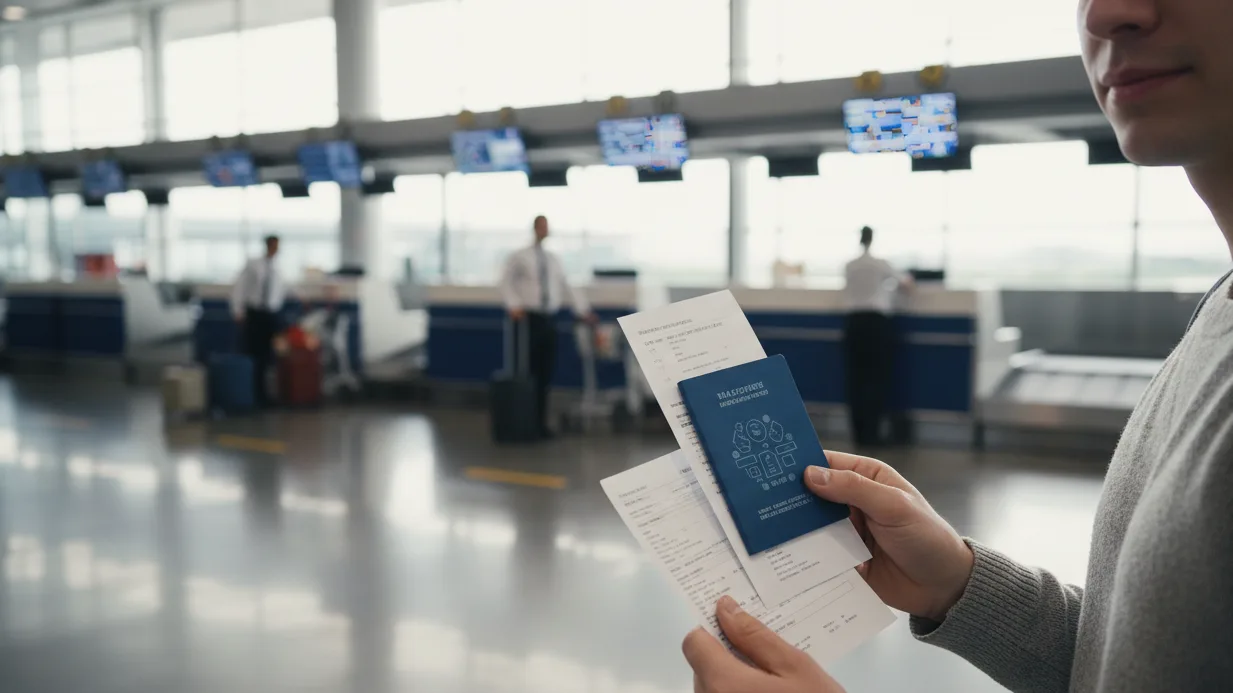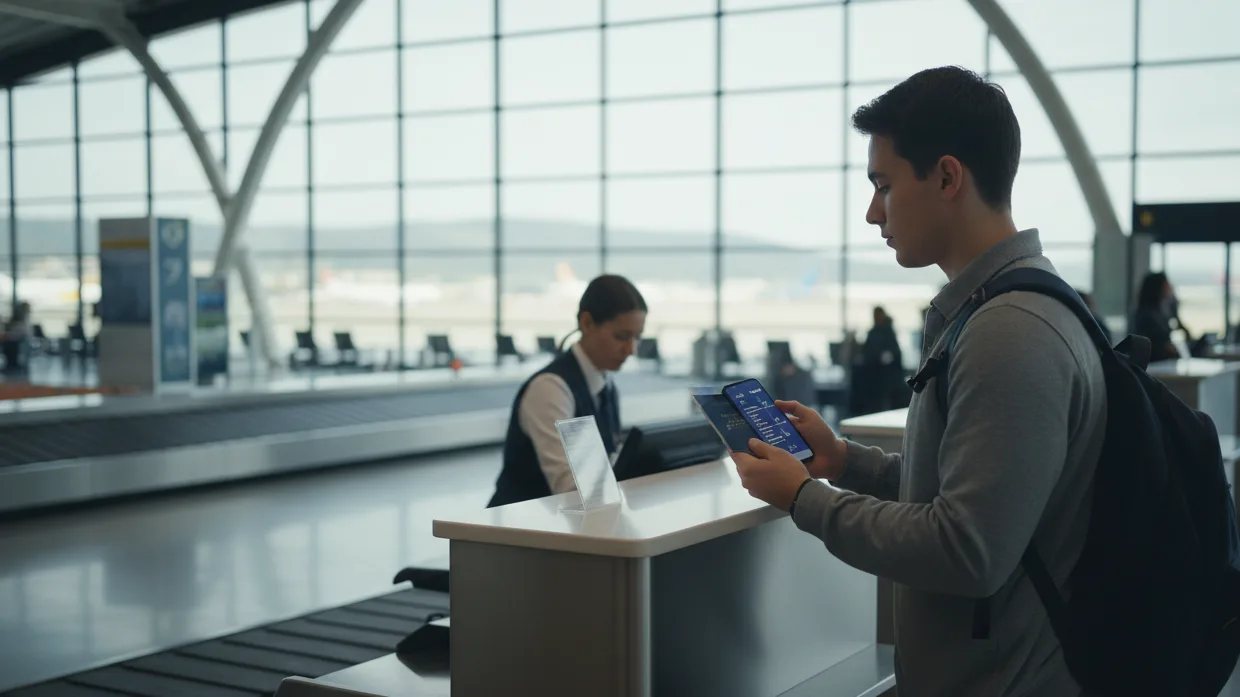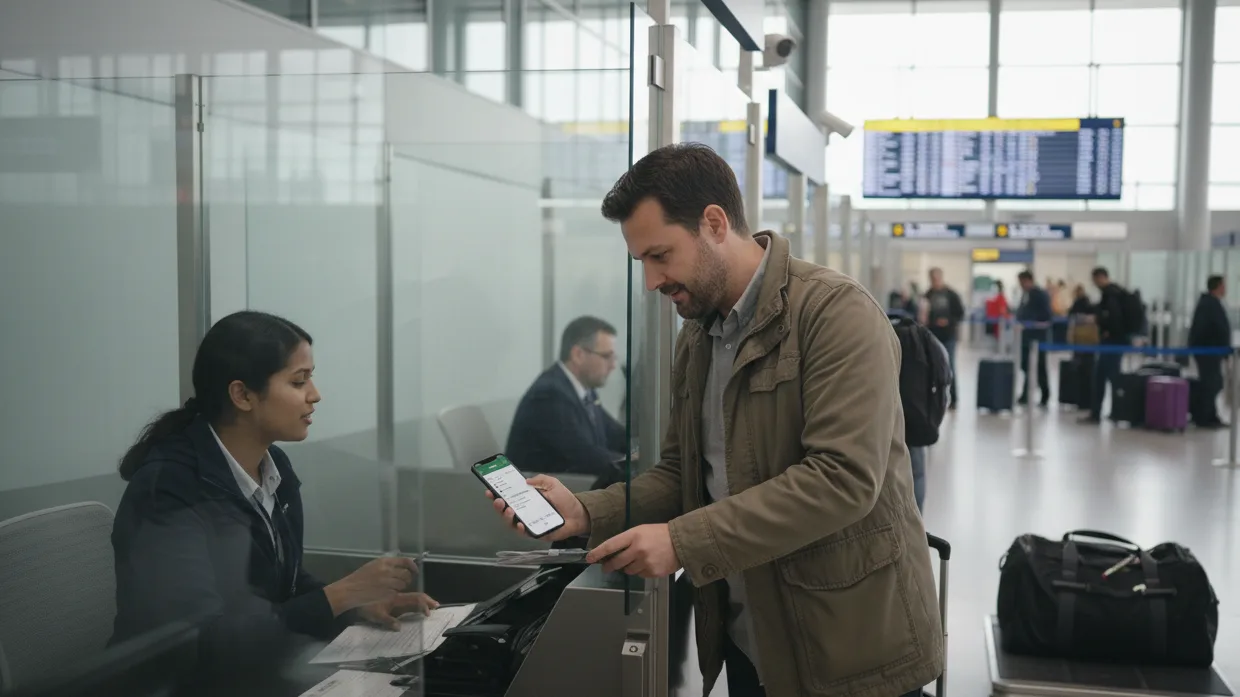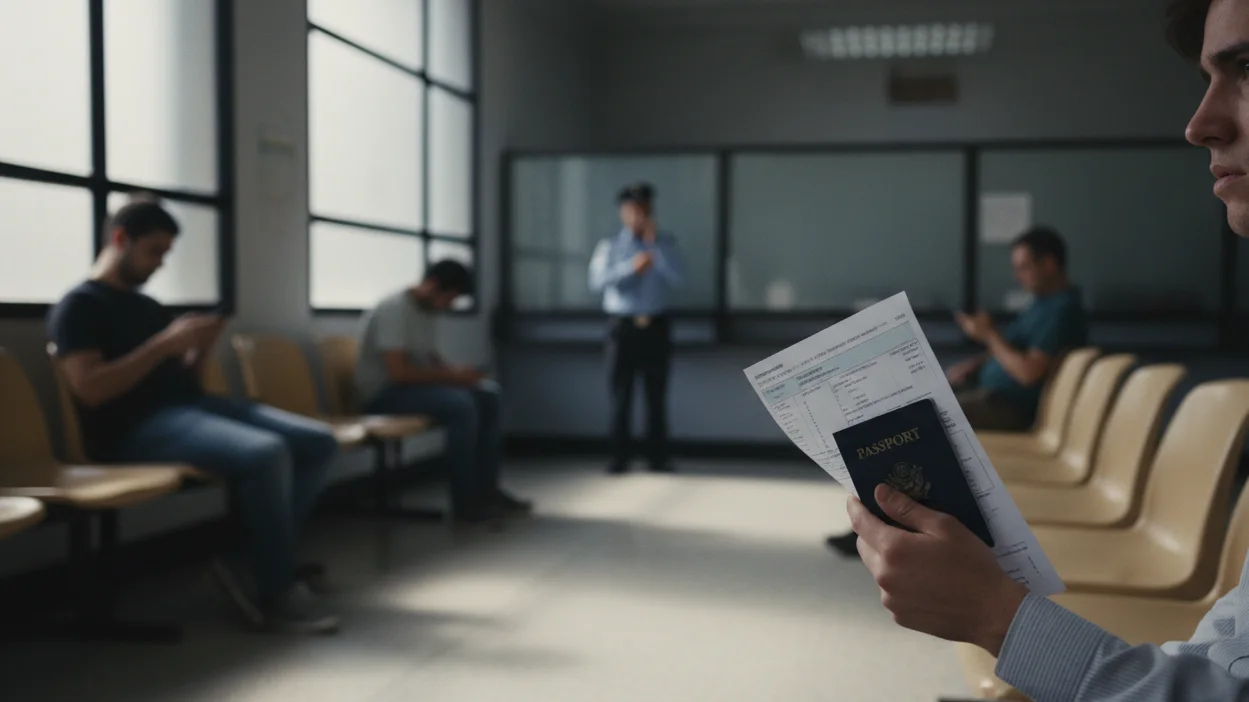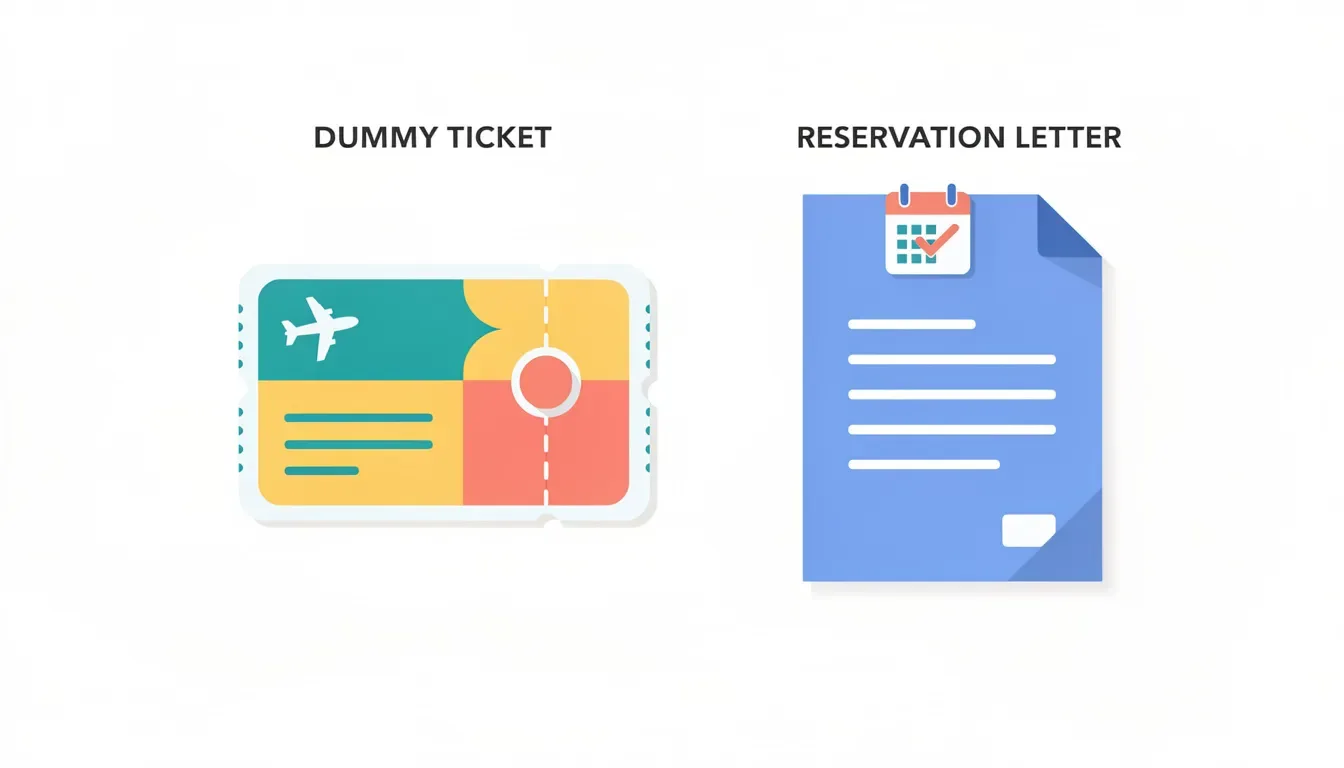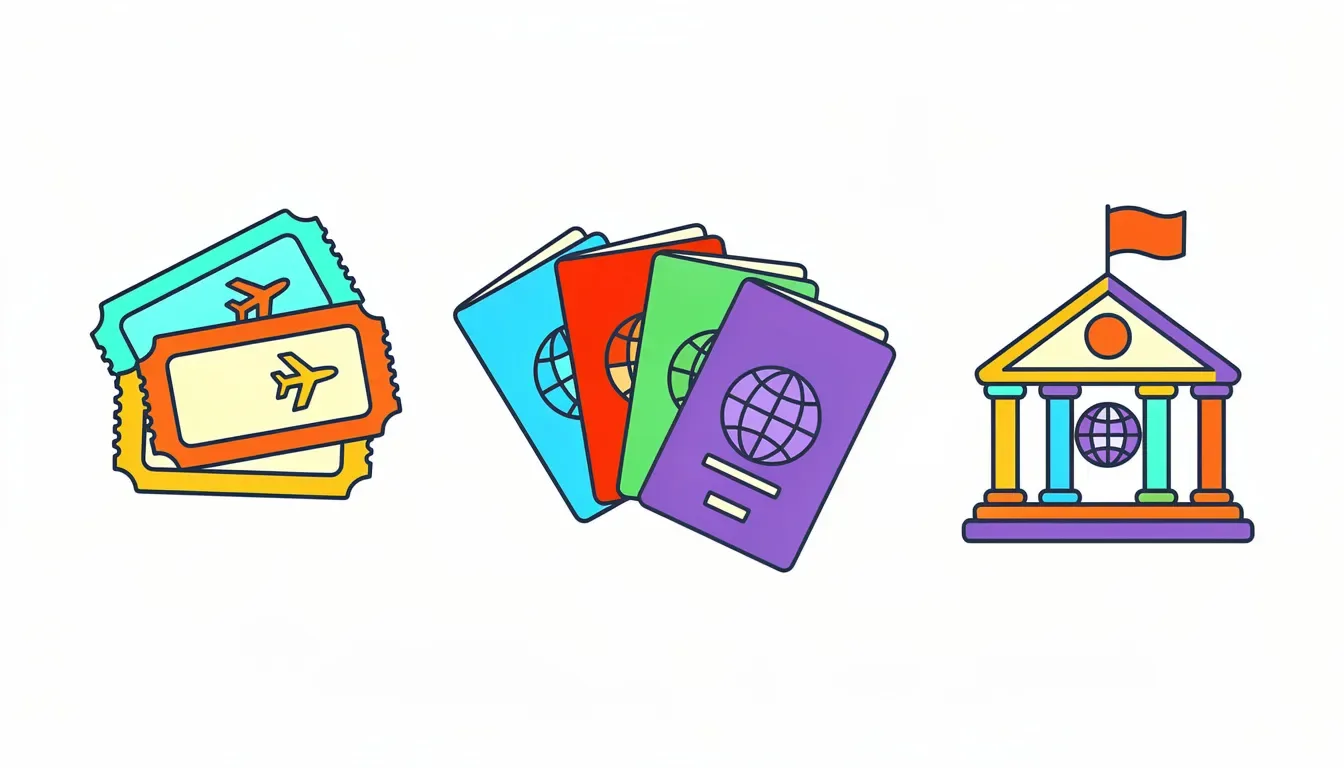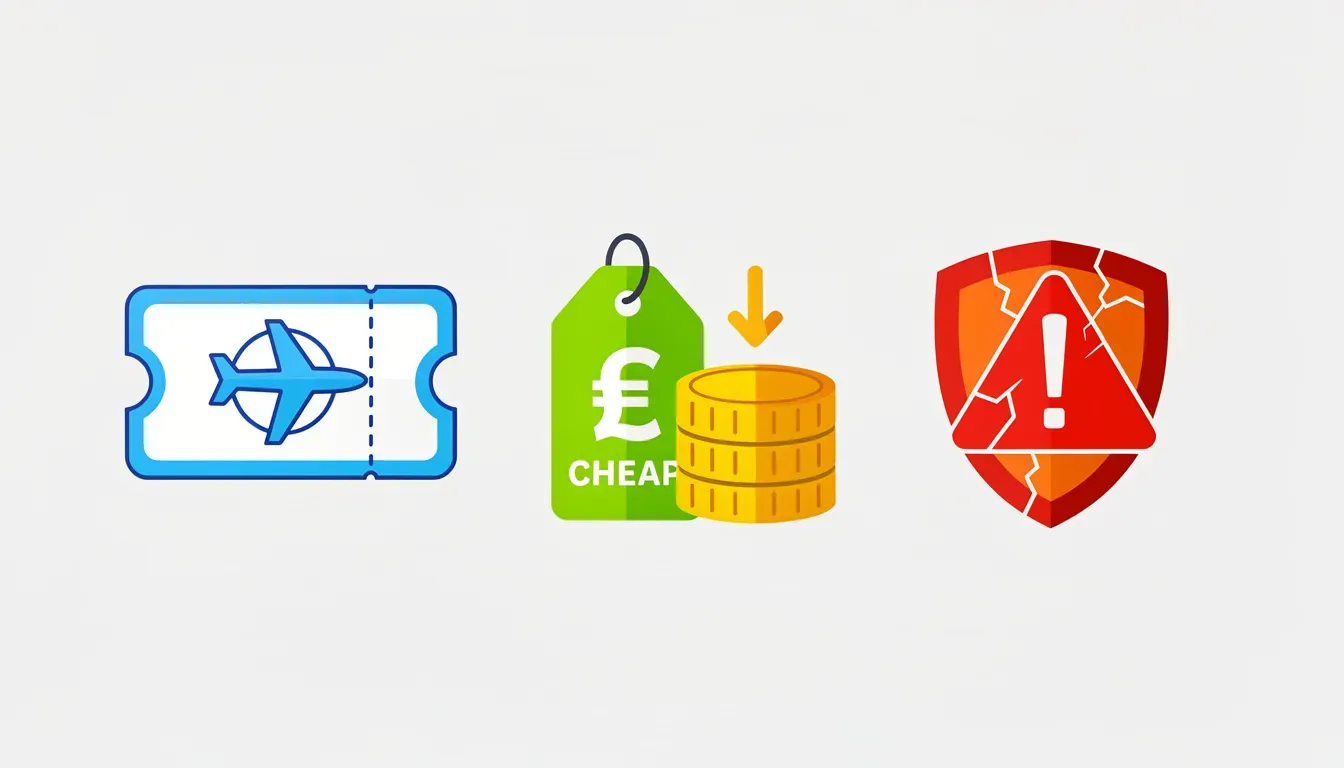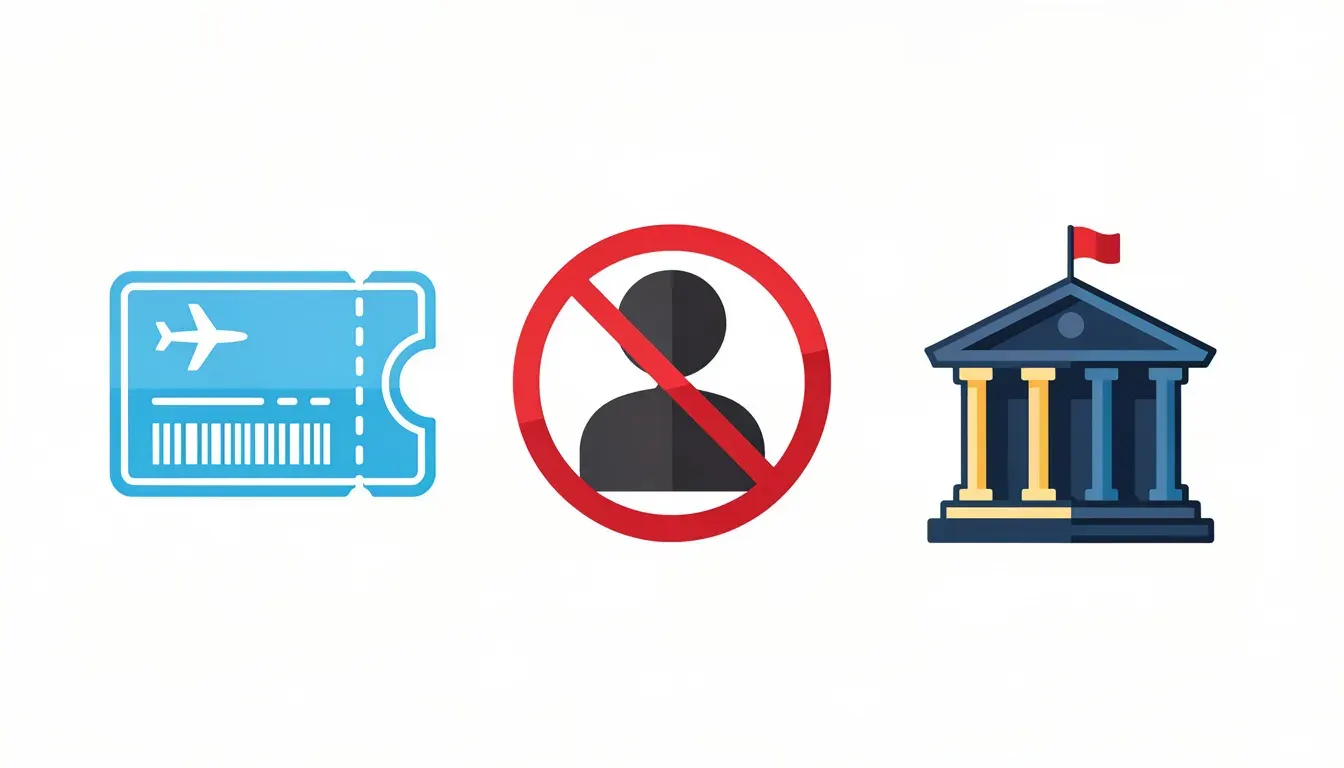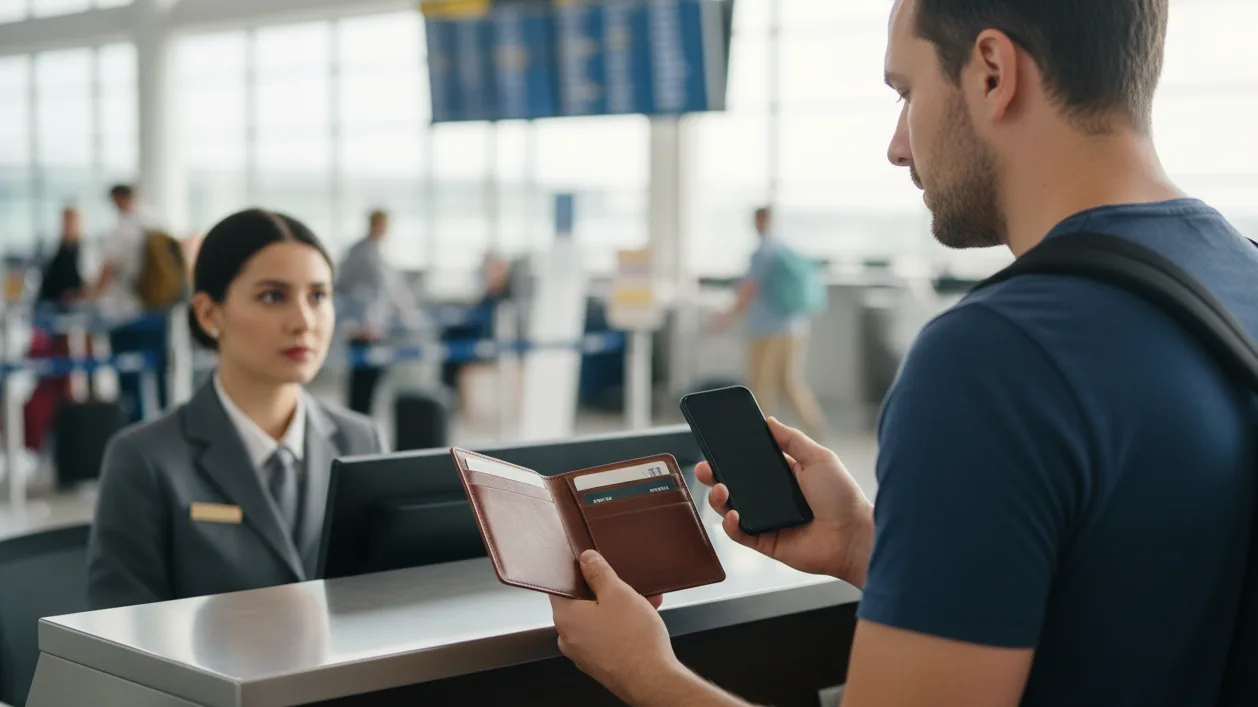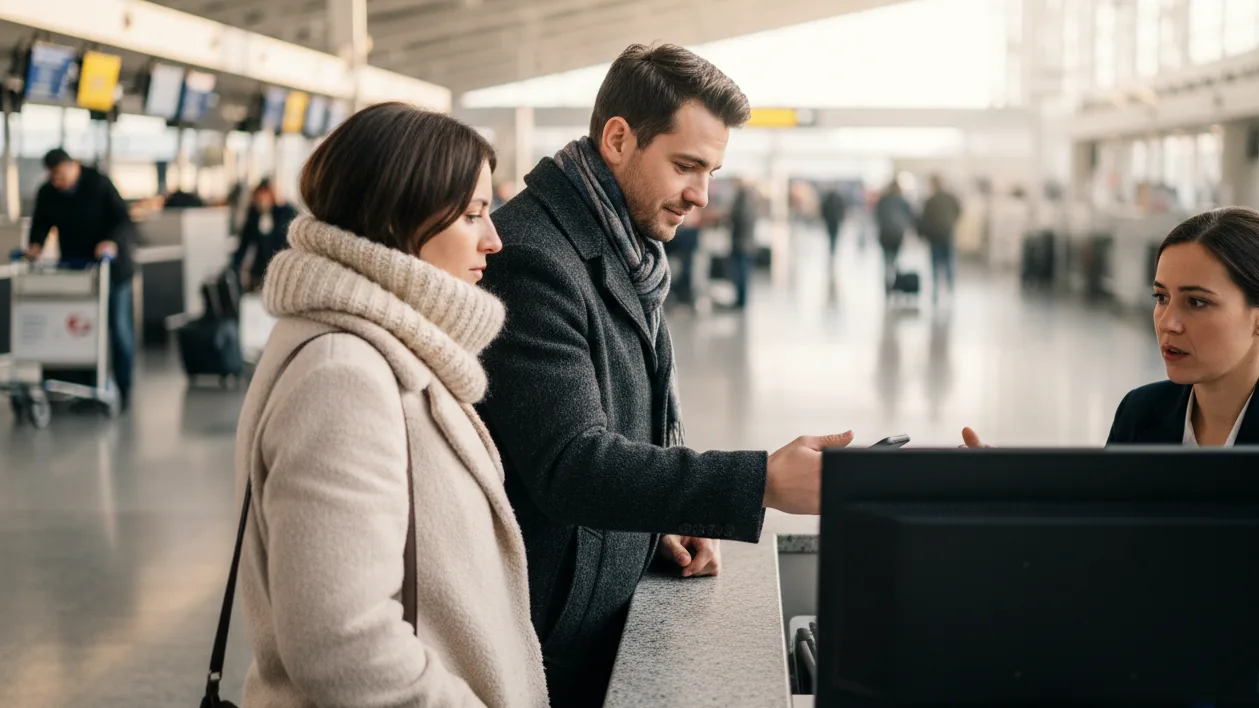What is a dummy ticket?
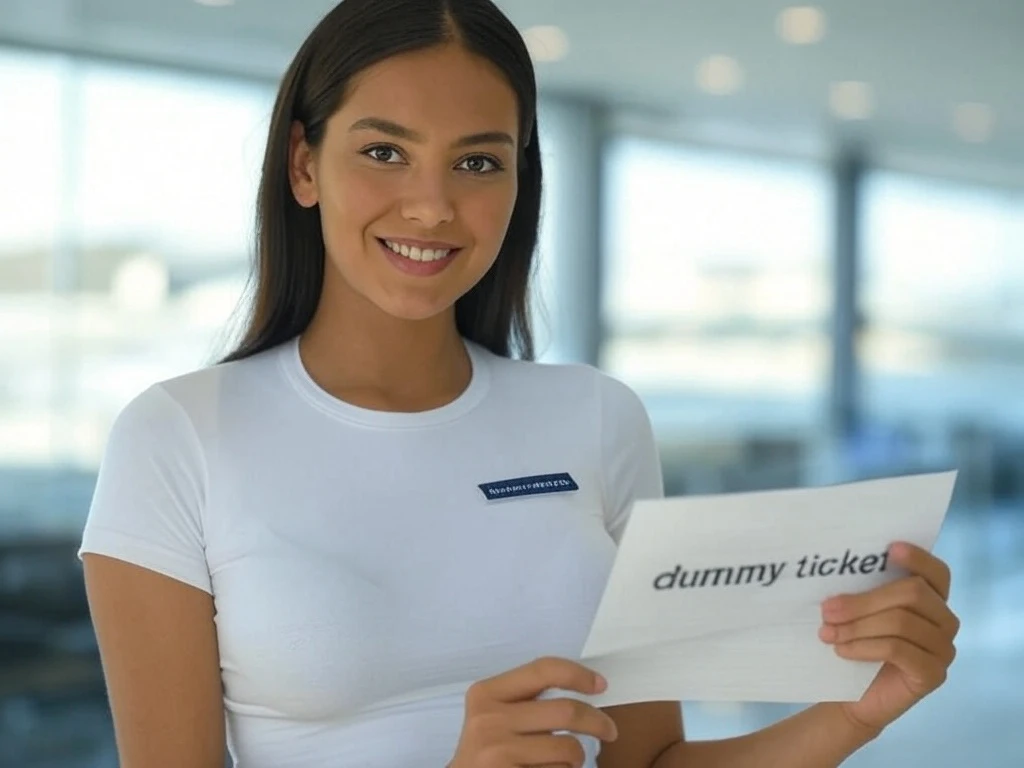
What Is a Dummy Ticket? Meaning, Purpose & Visa Context (2026 Guide)
Updated for 2026
A dummy ticket is a temporary flight reservation used as proof of onward or return travel, most commonly for visa applications. It includes a booking reference (PNR), passenger details, and itinerary information but does not require full payment at the time of issuance. Many embassies request a flight reservation rather than a confirmed ticket during the visa process. This guide explains what a dummy ticket is, how it works, and how consulates typically evaluate flight reservations in 2026.
Table of Contents
- What Is a Dummy Ticket?
- Why Embassies Advise Against Buying Full Tickets Before Visa Approval
- The Purpose of a Dummy Ticket
- How a Dummy Ticket Works
- Why Applicants Use Flight Reservations Instead of Paid Tickets
- Additional Uses for a Dummy Ticket Beyond Visa Applications
- Is a Dummy Ticket Legal?
- Common Misconceptions About Dummy Tickets
- Tips for Using a Dummy Ticket Effectively
- Related Guides
What Is a Dummy Ticket?
A dummy ticket is a temporary flight reservation used to demonstrate intended travel plans without purchasing a fully paid airline ticket. Unlike a confirmed ticket, which requires full payment and may involve cancellation penalties if plans change, a dummy ticket functions as a short-term hold in the airline’s reservation system. It typically includes the passenger’s name, flight number, travel dates, route details, and a verifiable booking reference (PNR).
For visa applications—such as Schengen, US, UK, or Canadian visas—many embassies request proof of travel in the form of a flight reservation rather than a fully paid ticket. A dummy ticket fulfills this requirement by showing planned entry and exit dates while allowing applicants to finalize travel arrangements only after visa approval.
Why Embassies Advise Against Buying Full Tickets Before Visa Approval
Embassies and consulates worldwide often explicitly advise travelers not to buy a full ticket prior to visa approval. Why? The answer lies in the uncertainty of visa outcomes and the financial risks involved. Here’s a breakdown of why this advice is so common:
- Visa Denials Happen: No matter how well-prepared your application is, visa approval isn’t guaranteed. If your visa is denied after you’ve purchased a full ticket, you could lose hundreds or even thousands of dollars on non-refundable flights.
- Embassies Understand Financial Constraints: Visa authorities recognize that travelers shouldn’t bear the burden of costly cancellations or rebooking fees. A dummy ticket provides a practical alternative, showing your planned itinerary without the financial commitment.
- Proof of Onward & Return Travel: Many countries require proof of onward or return travel to ensure you won’t overstay your visa. A dummy ticket satisfies this requirement without tying you to a specific flight you might not use.
- Flexibility for Changes: Travel plans can shift due to visa processing delays or personal circumstances. A dummy ticket offers flexibility, allowing you to adjust dates or destinations without penalties.
For example, the Schengen Visa Code and many embassy websites state that a flight reservation—not a paid ticket—is sufficient for visa applications. This is why many applicants choose to submit a temporary flight reservation instead of purchasing a non-refundable ticket in advance.
The Purpose of a Dummy Ticket
The primary purpose of a dummy ticket is to serve as a verifiable flight reservation for visa applications, immigration checks, or proof of onward travel. Let’s dive into its key uses:
- Visa Applications: Most embassies, including those for Schengen countries, the UK, and the US, require a travel itinerary as part of your visa documentation. A dummy ticket fulfills this need without the risk of losing money on a full ticket.
- Immigration Compliance: Some countries ask for proof of departure at the border. A dummy ticket acts as this proof, reassuring officials of your intent to leave within the allowed timeframe.
- Cost Savings: By using a dummy ticket, you avoid the expense of a confirmed ticket until your visa is approved, saving you from potential financial loss.
- Flexibility: A dummy ticket gives you room to adjust your travel plans, especially if visa processing takes longer than expected.
How Dummy Tickets Help Determine Visa Validity
A flight itinerary submitted with your visa application does more than prove onward travel—it also guides consular officers in setting the correct visa validity period. By reviewing your planned arrival and departure dates on the dummy ticket, embassies can issue a visa that matches the length of your intended stay, reducing the risk of validity mismatches that could cause entry issues or require costly extensions later.
Directing Applicants to the Correct Consulate
When your travel plans include multiple countries, the flight reservation helps officers quickly identify your main destination. This ensures you are processed by the right embassy or consulate (for example, the one representing the country where you will spend the most time or enter first), preventing delays or misdirected applications.
How a Dummy Ticket Works
A dummy ticket is typically a temporary flight reservation held by an airline or travel service for a short period—usually up to two weeks. It includes a booking reference that can often be verified on the GDS system, giving it legitimacy for visa purposes. Unlike a fake ticket, which is illegal and unverifiable, a dummy ticket is a legitimate reservation that hasn’t been paid for in full. When using a reputable reservation provider, the process typically involves entering travel details, generating a temporary reservation, and receiving a downloadable itinerary that includes a booking reference. The key requirement is that the reservation is verifiable in the airline system at the time of submission.
How Long Are Dummy Tickets Typically Valid?
Legitimate dummy tickets are temporary reservations held in the airline’s system, so they come with a limited validity period before they automatically expire if not ticketed. The exact duration depends on the airline and how the reservation was created, but common timeframes are:
- 24–48 hours: Common with many online providers and direct airline holds.
- Up to 72 hours: Offered by some agencies using major GDS systems (Amadeus, Sabre, etc.).
- 7–14 days: Longer holds are occasionally available from certain providers or airlines, especially for verifiable PNR-based reservations.
Always check the expiry details on your dummy ticket and submit your visa application well before it lapses. If processing is delayed, most reputable services allow you to generate a new reservation at no extra cost or for a small fee.
Extended-Validity Dummy Tickets (7–14 Days) – When Standard Holds Aren’t Enough
While most dummy tickets are held for 24–72 hours, some reputable providers now offer extended-validity reservations that remain live in the airline system for up to 14 days. These longer holds are especially useful when:
- Your visa appointment or document submission date keeps shifting.
- Processing involves holidays, backlogs, or inter-office routing that can add several days.
- You need extra time to finalize supporting documents (bank letters, insurance, etc.) without the reservation expiring mid-process.
A 14-day verifiable PNR functions exactly like shorter holds – it’s a real temporary reservation that can be checked on the airline website – but gives you significantly more breathing room. Embassies accept these extended reservations the same way they accept shorter ones, as long as the PNR is active and verifiable at the time of submission or review.
If your application timeline is uncertain, choosing an extended-validity option eliminates the need for last-minute reissues and keeps your submitted itinerary consistent from start to finish.
What Happens If Your Dummy Ticket Expires Before the Visa Decision?
In the majority of cases, embassies and consulates do not re-verify flight reservations after you have submitted your application. Once the documents are accepted at the visa center or embassy, the dummy ticket has served its purpose. However, if processing takes longer than expected and you are concerned:
- Most reputable providers allow you to generate a new reservation for free or a small fee if the original expires.
- Some services offer the option to extend the hold period when possible through the airline system.
- Keep records of your original submission (including any appointment confirmation) as proof the reservation was valid at the time of filing.
Travelers rarely encounter issues from expiry alone, provided the PNR was live and verifiable when the application was submitted.
Can I Submit an Expired Dummy Ticket to the Embassy?
One of the most common worries travelers have is whether an “expired” reservation (meaning the temporary hold has been released by the airline) will cause problems. In practice, it almost never does.
- Embassies and visa application centers evaluate the documents you submit at the time of submission—they do not routinely re-check the PNR weeks or months later.
- Once your application is accepted, the dummy ticket has fulfilled its role as proof of intended travel.
- Even if the airline has automatically cancelled the unpaid hold after 24–72 hours (or longer), the PDF you provided remains valid evidence of your original travel plan.
Thousands of visas are approved every year using reservations that technically “expired” in the airline system shortly after submission. As long as the PNR was live and verifiable when you handed in your documents, expiry later is irrelevant.
What If the Embassy Takes Weeks or Months to Process My Application?
For long processing times (common with certain countries or during peak seasons), travelers sometimes worry the reservation will be long gone by the time a decision is made. Here’s why that rarely causes issues:
- Consular officers understand that applicants are advised not to purchase fully paid tickets before approval.
- They expect flight reservations, not confirmed tickets.
- If additional documents are requested and your original reservation has expired, most providers will issue a fresh one quickly (often free or for a small fee) to match the new timeline.
In the extremely rare case an embassy contacts you about an expired hold, simply submit the updated reservation—they are almost always accommodating when you explain you followed their own guidance against buying a full ticket upfront.
Best Timing for Ordering Your Dummy Ticket
One of the most common questions travelers ask is when to generate their dummy ticket to ensure it remains live and verifiable during embassy review. Timing mistakes are easy to make, but they’re also easy to avoid:
- Don’t order too early: Generating your reservation weeks in advance risks it expiring before your appointment or submission date.
- Don’t wait until the absolute last second: While instant providers exist, leaving it too late can add unnecessary stress if any unexpected issues arise.
- The ideal window: Order your dummy ticket 1–3 days before your visa appointment or document submission. This ensures the PNR is active when consular staff are most likely to check it.
Many reputable reservation providers allow free or low-cost reissues if appointments are rescheduled or reservations expire before submission.
Are Dummy Tickets Refundable?
No. Dummy tickets are low-cost services for creating a temporary verifiable reservation, not actual flight purchases, so they are non-refundable. The fee covers the generation and holding of the booking in the airline’s system. However, many trusted providers offer unlimited free date changes or re-issues if your travel plans shift while awaiting visa approval, giving you flexibility without additional cost.
Free or Low-Cost Date Changes After Purchase
Travel plans can shift while waiting for visa approval. Many reputable reservation services allow itinerary adjustments if your application timeline changes. Always confirm modification policies before ordering your reservation to avoid inconsistencies in submitted documents.
Multi-City Dummy Tickets for Complex Itineraries
Many travelers have trips that involve visiting several cities or countries. Reputable dummy ticket providers can create verifiable multi-city flight reservations that include multiple stops while keeping a single live PNR (or coordinated PNRs) that can be checked on the airline websites. This is especially helpful when:
- Your itinerary requires proof of internal flights within the destination area.
- You need to show logical transit points without triggering transit-visa concerns.
- The embassy expects a complete travel plan rather than a simple return ticket.
A well-structured multi-city dummy ticket looks realistic, uses real operating flight numbers, and passes verification the same way a single round-trip reservation does.
Avoiding Transit Countries That Require Visas
When generating your dummy ticket, you can often select routes that avoid layovers in countries where you would need a transit visa. Legitimate providers allow filters or manual airline selection to route your reservation through visa-free transit airports (e.g., Doha, Dubai, Singapore, or Istanbul instead of certain others). This small detail prevents consular officers from raising questions about additional transit documentation and keeps your application straightforward.
PDF-Only vs GDS-Verifiable Dummy Tickets – Which Is Safer for Visa Submission?
There are two main types of dummy tickets travelers encounter:
- Simple PDF itineraries: Generated documents that look like a booking but have no live record in any airline system. Easy to create, but many embassies and immigration officers now reject or question them.
- GDS-verifiable bookings (recommended): Real temporary reservations made through global distribution systems with a live PNR that can be checked directly on the airline’s website (e.g., “Manage Booking” or “Check Reservation.” pages).
Verifiable GDS bookings are strongly preferred because consular officers and immigration staff can confirm the reservation exists in real time, significantly reducing the chance of issues during document checks.
How Embassies Actually Verify Flight Reservations
One common concern travelers have is exactly how consulates check the flight details you submit. In practice, embassy and VFS staff rarely phone the airline. Instead, they use one of these quick methods:
- Entering your 6-character PNR and last name directly on the airline’s official “Manage Booking” or “View Reservation” page.
- Checking the reservation through internal access to global distribution systems (GDS) such as Amadeus, Sabre, or Galileo—tools that many visa processing centers have.
- Occasionally scanning a QR code or using the airline’s mobile check feature if the document includes one.
As long as your dummy ticket contains a genuine, active PNR from a real airline at the moment of submission, it will show up exactly like any normal booking. This is why verifiable GDS-based reservations are accepted worldwide while simple PDF-only itineraries are increasingly rejected.
Additional Red Flags of Fake Dummy Tickets
While most fake tickets fail the PNR verification test, some are designed to look convincing at first glance. Here are lesser-known visual and technical clues that experienced consular staff and travelers watch for:
- Incorrect ticket number format: Genuine e-tickets usually include a 13-digit ticket number beginning with the airline’s specific code (e.g., 098 for Air India, 176 for Emirates). Random or missing ticket numbers are a common forgery mistake.
- Font and layout inconsistencies: Real airline documents use precise fonts, spacing, and alignment. Forged PDFs often have mismatched fonts, perfect symmetry, or pixelation when zoomed in.
- Currency or fare basis errors: The fare may appear in the wrong currency or show an unrealistic “OK” or “Confirmed” status for an unpaid reservation.
- Impossible IATA agent codes: The issuing agency stamp or code at the bottom is often invented or belongs to a non-existent travel agent.
Extra Verification Steps Used by Consulates
Beyond the standard airline “Manage Booking” check, some embassies and VFS staff perform these additional confirmations:
- Codeshare partner verification: They test the same PNR on the operating carrier’s website if the flight is codeshared (e.g., checking an Air France–KLM joint flight on both airlines’ portals).
- Ticket-number prefix check: They confirm the first three digits match the issuing airline’s official code.
- Direct GDS lookup: Many visa centers have access to Amadeus, Sabre, or Galileo and can see the exact booking status in real time.
Including a screenshot of your successful PNR verification from the airline’s official website (taken while the reservation is still active) can serve as extra proof if any questions arise.
What Makes a Dummy Ticket Truly Legal and Embassy-Safe?
While a basic flight reservation can satisfy many visa requirements, not all dummy tickets are created equal. To minimize any risk of rejection, a legitimate dummy ticket must meet these key criteria:
- Created through official airline systems (GDS) – Amadeus, Sabre, or similar – so the booking actually exists in the airline’s database.
- Contains a genuine, live PNR (Passenger Name Record) that anyone can verify directly on the airline’s “Manage Booking” page using the code and passenger last name.
- Shows real flight routes and schedules that match currently operating flights (no invented flight numbers or impossible routes).
- Accurately lists passenger names that exactly match the passport (spelling, order, and title).
- Is clearly a reservation, not falsely marked as “confirmed/paid” – misrepresentation of payment status can be flagged.
Dummy tickets meeting all of the above are widely regarded as legal proof of travel intent because they are real temporary holds, not fabricated documents.
Free Dummy Ticket Generators vs Verifiable Reservations – Why Free Can Cost You
Free online “dummy ticket generators” that simply let you fill in details and download a PDF are not real reservations and carry significant risk:
- No live PNR exists in any airline system.
- Many embassies and VFS staff now recognize the most common fake templates.
- Verification attempts fail instantly, often leading to immediate application rejection or accusations of submitting false documents.
In contrast, reservations created through official airline systems generate a live PNR that can be checked directly on airline websites. Because these reservations exist within global distribution systems, they are generally more reliable for visa documentation than PDF-only templates.
How to Verify Your Dummy Ticket PNR Yourself (Before Submission)
One of the easiest ways to confirm your dummy ticket is legitimate and embassy-ready is to test the PNR yourself immediately after download. This simple step gives you peace of mind and proof if an officer ever questions the reservation.
- Locate the 6-character PNR code and the airline name on your dummy ticket PDF.
- Visit the official airline website (e.g., Emirates.com, Lufthansa.com, etc.).
- Go to “Manage Booking,” “My Trips,” or “Check Reservation.”
- Enter the PNR + your exact last name as it appears on the ticket.
- If the booking appears with all matching details (name, route, dates), the reservation is live and verifiable.
Taking a screenshot of the successful verification page is recommended as extra backup—many travelers keep it in the same folder as their visa documents.
What to Do if You Enter Incorrect Details
Mistakes happen. If you notice a misspelled name, wrong date, or incorrect passport number after checkout:
- Contact the reservation provider promptly to request corrections.
- Most allow free or low-cost fixes if requested within a few hours of purchase.
- A new corrected dummy ticket with a fresh PNR is usually issued within minutes.
Acting fast prevents submission delays, as the original reservation can still be canceled or replaced without affecting your application timeline.
Can You Actually Fly with a Dummy Ticket?
No. A dummy ticket is never a confirmed, ticketed reservation. Attempting to check in or board with one will result in denial by the airline, as the booking shows as “unpaid” or “on hold” in their system. Dummy tickets are strictly for documentation purposes (visa applications, proof of onward travel, etc.) and should never be used for actual travel.
Why Applicants Use Flight Reservations Instead of Paid Tickets
Many visa authorities advise applicants not to purchase fully non-refundable tickets before approval. A temporary reservation allows applicants to demonstrate intended travel dates without committing to final travel arrangements.
Common reasons applicants choose reservations include:
• Meeting embassy documentation requirements
• Maintaining flexibility while awaiting approval
• Avoiding financial loss if plans change
• Aligning travel dates with supporting documents
Additional Uses for a Dummy Ticket Beyond Visa Applications
While dummy tickets are primarily known for visa submissions, travelers also use them successfully in other common scenarios where proof of a flight reservation is requested:
- Expediting passport renewal: Many countries (including the US) allow expedited passport processing if you can show upcoming travel plans. A verifiable dummy ticket serves as acceptable proof without committing to a paid flight that might go unused if the passport arrives late.
- Providing evidence for emergency or family leave requests at work: When urgent time off is needed, a dummy ticket with confirmed dates can support your leave application to HR or management while keeping costs minimal.
- Renting a car at your destination airport: Some rental agencies require a return or onward flight detail to confirm you are a short-term visitor or to prepare the vehicle. A dummy ticket supplies the necessary flight information without a full purchase.
Using a Dummy Ticket as Proof of Onward Travel at Airport Check-In and Immigration
While the primary use of a dummy ticket is for visa applications, many travelers also rely on a verifiable dummy ticket when flying on a one-way ticket to satisfy airline and immigration requirements for proof of onward travel.
- At airline check-in counters: Airlines may refuse boarding if you cannot show you will leave the destination country, as they can be fined for transporting inadmissible passengers. A dummy ticket with a live PNR is routinely accepted because staff can verify it instantly in their system.
- At immigration on arrival: Border officers in some countries perform random checks and may ask for evidence of departure plans. Presenting a printed or digital dummy ticket that matches your stated itinerary usually resolves the query immediately.
Keep a printed copy and a digital version accessible offline. As long as the PNR is active at the time of checking (typically 24–72 hours or longer with reputable providers), a legitimate dummy ticket serves as reliable proof of onward travel without the need to purchase an expensive fully paid ticket.
These legitimate uses make dummy tickets a versatile, low-cost tool for various travel-related administrative needs.
Is a Dummy Ticket Legal?
Yes, a dummy ticket is legal when it is a genuine temporary reservation created through official airline systems. It must contain a verifiable PNR and reflect real operating flight details.
- Use Reputable Services: Avoid free ticket generators or unverifiable sources, as these can lead to visa rejection or legal issues.
- Check Embassy Rules: While most embassies accept dummy tickets, some may require a fully paid ticket in rare cases. Always review the specific requirements of your destination.
Common Misconceptions About Dummy Tickets
Let’s clear up some myths about dummy tickets:
- “A dummy ticket is the same as a fake ticket”: Not true. A dummy ticket is a real reservation; a fake ticket is a forged document.
- “Embassies won’t accept dummy tickets”: Most embassies explicitly allow flight reservations instead of paid tickets.
- “It’s complicated to get one”: Many reservation providers allow online ordering and digital delivery.
Tips for Using a Dummy Ticket Effectively
To maximize the value of your dummy ticket, follow these tips:
- Match Your Application: Ensure the dates and destinations on your dummy ticket align with your visa application.
- Act Fast: Submit your visa application soon after getting your dummy ticket, as reservations typically expire within days or weeks.
- Choose a provider that creates airline-verifiable reservations with a live PNR.
- Keep entry and exit dates identical across all documents (visa form, dummy ticket, hotel reservation, insurance) to avoid mismatches that can raise questions.
- If your travel dates shift after generating your reservation, ensure your itinerary remains consistent with the rest of your visa documents.
- Submit your application while the reservation remains active.
- At the airport (safety tip): While dummy tickets are primarily for visa applications, some immigration officers or airline staff at check-in may ask to see proof of onward travel. In rare cases they attempt to verify the PNR status in real time. Carry a digital or printed copy of your reservation and be prepared to purchase an inexpensive onward ticket on the spot if required—most travelers never face this situation with a legitimate verifiable dummy ticket.
Quick Legal Checklist Before Submitting Your Dummy Ticket
- ✓ Test the PNR yourself on the airline’s official website before submission.
- ✓ Ensure the passenger name matches your passport exactly.
- ✓ Use only currently operating flight numbers and realistic routes.
- ✓ Submit while the reservation is still active (typically 7–14 days with reputable providers).
- ✓ Keep a screenshot of the successful PNR verification as backup (useful if questioned).
Following this checklist keeps your application compliant and dramatically reduces the chance of issues, even with stricter consulates.
Is a dummy ticket still valid for visa in 2026?
Yes, based on 2026 embassy guidelines, dummy tickets remain valid as proof of travel intent when verifiable.
Which embassies accept onward ticket reservations?
Most embassies, including Schengen, US, UK, and Canadian, accept verifiable onward ticket reservations as part of visa applications.
About the Author
Visa Expert Team — With over 10 years of combined experience in travel documentation and visa assistance, our editorial team specializes in creating verifiable flight and hotel itineraries for visa applications. We have supported travelers across 50+ countries by aligning documentation with embassy and immigration standards.
Editorial Standards & Experience
Our content is based on real-world visa application cases, airline reservation systems (GDS), and ongoing monitoring of embassy and consular documentation requirements. Articles are reviewed and updated regularly to reflect current practices.
Trusted & Official References
- U.S. Department of State — Visa Information
- International Air Transport Association (IATA)
- UAE Government Portal — Visa & Emirates ID
Important Disclaimer
While our flight and hotel reservations are created to meet common embassy requirements, acceptance is not guaranteed and may vary by country, nationality, or consulate. Applicants should always verify documentation rules with the relevant embassy or official government website prior to submission.
Need official visa guidance before you submit?
For embassy checklists, visa document rules, and proof-of-travel requirements, read our trusted guides: Expert visa guides by BookForVisa .
Tip: For official embassy checklists and visa documentation requirements, consult reliable government or travel advisory sources before submission.


